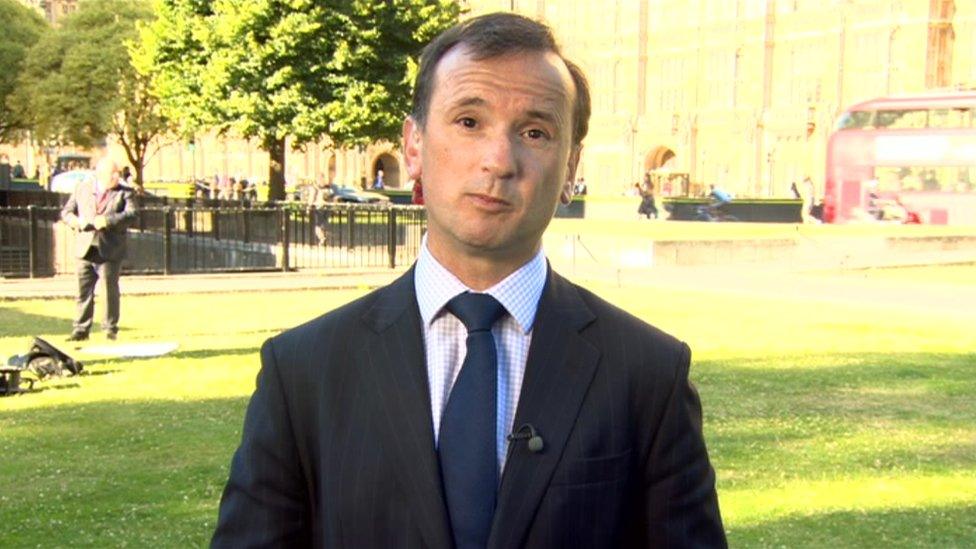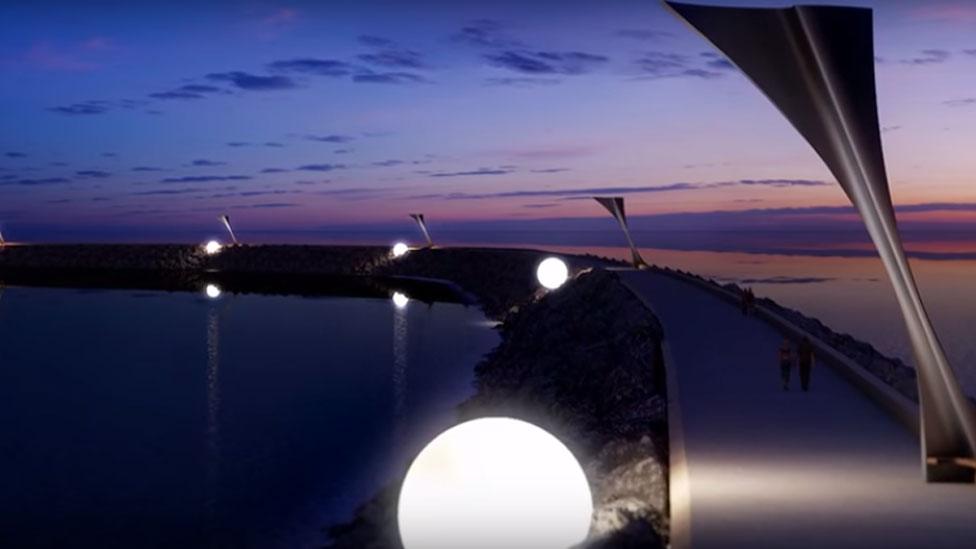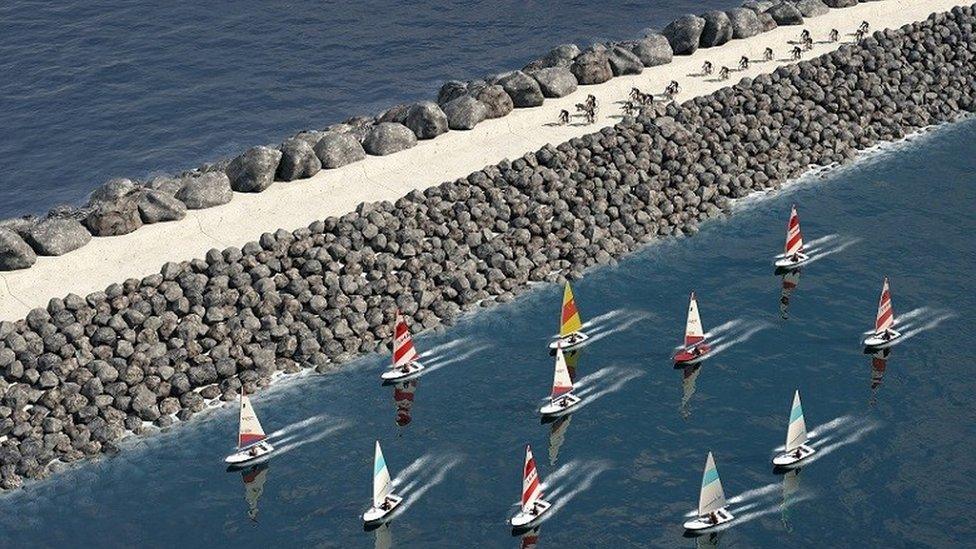Swansea Bay Tidal Lagoon: Decision dismay 'to be expected'
- Published

Alun Cairns said the project "just did not stack up"
Given it had near unanimous support in Welsh politics, dismay at the lagoon's cancellation was to be expected.
Labour and Plaid Cymru are ramping up the pressure by calling for Alun Cairns to resign, but he isn't budging.
Anyway, it was Business Secretary Greg Clark who made the final decision, not Mr Cairns.
The dynamics within the Conservative party are arguably more interesting than the opposition's brickbats.
Sinking the scheme is a "desperately depressing decision", says Tory AM Suzy Davies.
She, like all Tory AMs, were enthusiastic supporters of the lagoon. But an endorsement of the project by Andrew RT Davies and his team made no difference in the end.
Accusations that their party has let down Swansea, so soon after deciding not to electrify the city's main rail line, will sting.
Conservative high command will try to claw back the political cost of abandoning the lagoon by claiming to be on the side of electricity bill payers.

The tidal lagoon would have had an operational life of 120 years
The UK government was desperate to avoid a bad deal after the Public Accounts Committee laid into the agreement behind Hinkley Point C, external.
Hence why Mr Cairns always caveated his approval of tidal power with the need to secure value for money.
Now he and Mr Clark will say they have saved the consumer an arm and a leg.
Will that argument work?
"That's not going to cut through in Gower," says a Welsh Tory source, referring to the target constituency bordering Swansea - a seat his party would dearly love to regain at the next general election.
- Published25 June 2018

- Published25 June 2018
